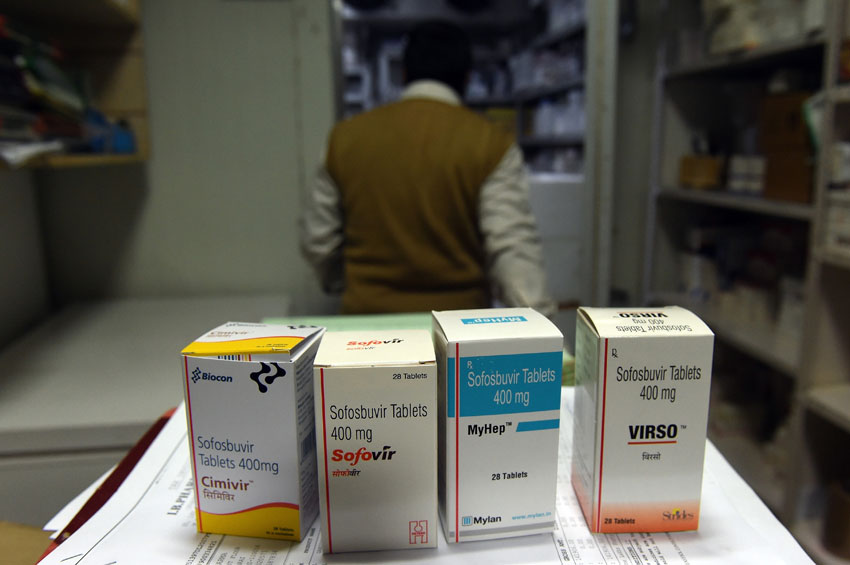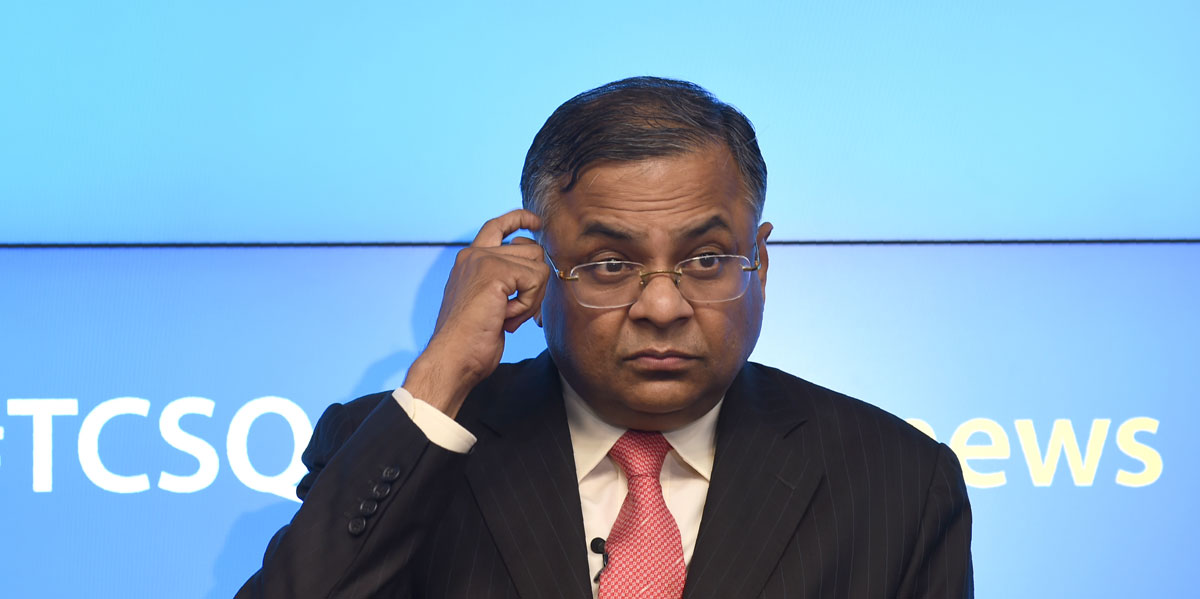STEPPING UP ANTI-PIRACY DRIVE
CEO and MD of Tata Consultancy Services (TCS) N. Chandrasekaran announces the financial results of the company for the year ended March 31, in Mumbai on April 18. India’s biggest IT outsourcing firm Tata Consultancy Services says it will challenge $940 million in damages imposed by a U.S. court in an intellectual property theft case. A federal grand jury in the U.S. state of Wisconsin found TCS and its American unit guilty of using data from a U.S. medical software firm without permission, according to Indian media reports. (Indranil Mukherjee | AFP | Getty Images)
The U.S., April 28, welcomed efforts undertaken by India to promote intellectual property (IP) rights within the country and the steps it has taken to strengthen protection and enforcement, writes Lalit K. Jha. (@Siliconeer, #Siliconeer, #India, #antipiracy, #intellectualpropertyrights)
“The United States has welcomed efforts undertaken by Prime Minister Narendra Modi’s administration to promote IPR within India and the steps it has taken to strengthen protection and enforcement,” the Office of the U.S. Trade Representative (USTR) said in its latest 301 annual report.
The report said high-level national initiatives, such as ‘Make in India’ and ‘Start-up India’ have linked realization of development goals to Intellectual Property (IP) creation and protection.
The 2015 passage of the Commercial Courts, Commercial Division and Commercial Appellate Division of High Courts Bill may provide an important new tool for right holders in India to efficiently and effectively enforce their rights in the courts, it said.
According to USTR, hiring and training of large numbers of new patent and trademark examiners should help to reduce significant delays new applicants face while also cutting down the backlog of pending applications.
Significant state-level enforcement developments included the establishment of India’s first anti-piracy policy unit in Telangana and Andhra Pradesh’s anti-piracy campaign, which resulted in the arrest of 11 individuals involved in an international piracy ring, the report said.
“The United States also welcomed the deliberate and transparent process employed in India’s evaluation of a compulsory license application in 2015,” USTR said, but quickly noted that these are not enough to remove India from the Priority Watch List, indicating that it will wait for some time before India is excluded from this list.

In other areas recent actions have raised new concerns.
For example, India s proposed Patent Rule Amendments would introduce concerning new incentives to pressure patent applicants to localize manufacturing in India and require the submission of sensitive business information to India s Patent Office, the report said.
India has also not taken the opportunity to address longstanding challenges that represent significant IP regime deficiencies compared to other markets.
The pharmaceutical industry in particular faces a host of challenges related to IP, it said.
Observing that the Indian government is in the final stages of its thorough and holistic review of the IP regime to “nurture the IP culture and address all facets of the IP system including legal, administrative and enforcement infrastructure, human resources, institutional support system and international dimensions,” the US report commended India for undertaking this task.
According to the report, the U.S. continues to seek changes to India’s copyright protection and enforcement regime that would protect both Indian and U.S. copyright holders in the vibrant and promising Indian market.
In particular, the U.S. urged India to – enact anti-camcording legislation; model its statutory license provisions relating to copyrighted works on the standards of the Berne Convention for the Protection of Literary and Artistic Works (Berne Convention); ensure that collecting societies are licensed promptly and able to operate effectively; an fully establish and operationalize India’s Copyright Boards; address the problem of underreporting of cable subscriptions.
It also urged India to take steps to prevent public broadcasters from facilitating dissemination of pirated content; and provide additional protections against signal theft, circumvention of TPMs, and online copyright piracy.
“The United States urges India to reject policies and practices that amount to barriers that adversely affect not only U.S. companies, but Indian companies as well.
“The United States encourages India instead to adopt policies that both address domestic challenges and support the cutting-edge innovation that can be critical to meeting legitimate domestic policy goals,” the report said.


